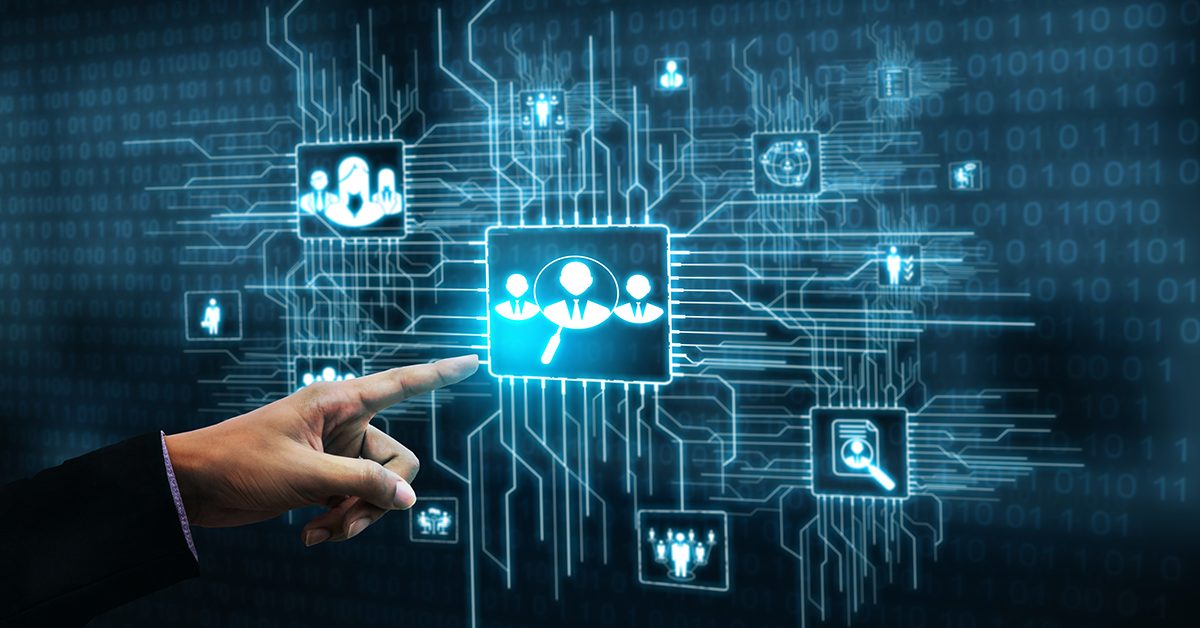Has the human been replaced in human resources? Perhaps not in ways that are always entirely noticeable to job applicants, but it’s no secret that technology is seeing increased usage in, and continues to support and enhance, various HR functions.
Artificial intelligence (AI) systems have penetrated nearly every aspect of life, from customer service and entertainment to healthcare and transportation. It’s no small wonder that a large and growing number of HR departments have adopted AI to help them in areas of recruiting, talent acquisition, and performance management.
Indeed, AI is likely to be present throughout the job search process. AI is being used to help job candidates write a cover letter for resume applications, or even write the resume itself; evaluate and rank resumes in Applicant Tracking Systems (ATS); create job postings and job descriptions; and even communicate with candidates.
So, how is AI helping HR professionals?
AI: A Major Resource for HR
In February 2024, the Society for Human Resource Management (SHRM) reported that close to half of HR professionals they surveyed admitted that the usage of AI to support their department had become a priority over the previous year. This survey was conducted on HR professionals across various industries.
While the majority of HR professionals employ the use of AI in talent acquisition, the technology is also valuable in areas of candidate screening, resume analyses, personality assessments, and video interviewing. AI is even used to match specific job applicants to job descriptions.
Paired with experienced HR personnel, AI is an invaluable supportive tool that streamlines the resume reviewing and interviewing processes, shortens response times, and reduces the need for follow-up interviews. By using AI to identify the best candidates for a job, HR professionals can make more informed and thus better decisions.
Making AI-Driven Decisions in HR
Assembling and analyzing data when making recruiting, selection, and hiring decisions can be a daunting and exhausting job. Essentially, the use of AI helps reduce human error that can be caused by any fatigue or human bias resulting from these tasks.
In addition, AI can present insights that might be overlooked or not achievable by human evaluation alone. For example, AI is simply more adept at processing complex data and making predictive insights. The human mind makes predictions based heavily on past events and is fairly limited in predicting future tendencies.
Through more detailed analyses provided by AI systems, the pairing of job descriptions with the most skilled and experienced candidates can be accomplished. By removing any bias that human evaluation might incur and armed with more accurate insights and predictive knowledge, HR professionals could be in a better position to make fairer decisions in regards to selection and hiring.
The use of AI in HR decision-making continues after a candidate is hired. Professional development, workforce planning, training, performance review, and employee engagement are other top areas in which HR departments implement AI technology.
1. Professional Development and Training
Using an AI program that analyzes an employee’s goals, skills, and interests, HR professionals can get recommendations for training courses, workshops, continuing education classes, and other tools by which individual employees can further their careers. This information can help HR make better decisions about which employees could benefit most from these opportunities and could even help them decide which employees would be best for promotions or movement to other areas of the company.
2. Workforce Planning
AI technology can be used to analyze specific industry trends, make workforce adjustment recommendations, consider growth expectations, identify skills gaps, and evaluate workforce skills. This data can help HR leaders make fair and accurate decisions regarding staff adjustments, resource allocation, and skills development.
3. Performance Review
The practice of using AI to evaluate an employee’s work performance over the previous year can present data in an objective way that removes any personal bias or analysis error. In this way, fair decisions can be made in areas of feedback, compensation, and setting goals for individual employees.
4. Employee Engagement and Satisfaction
AI-generated surveys could help determine exactly what employees expect of their employers and deliver feedback employers can use to make decisions about rewards programs, incentives, time-off policies, and other work-life balance issues. AI platforms can be used, for example, to create personalized incentives that are fair for all employees.
Conclusion
While some may fear that using AI might have a negative impact on the human touch in HR operations, many within the field feel that when used correctly the technology can only improve and support rather than hurt the human side of this area.
Ellen Kuntzmann, a director of talent acquisition for Delware-based Integrity Staffing Solution, stated in January 2024 that AI was viewed as “an invaluable tool, rather than a substitute for human interaction.”
Ultimately, AI analyzes and makes suggestions in ways the human mind does not, and offers information in a more detailed and predictive manner that helps in decision-making for HR professionals in all industries.











